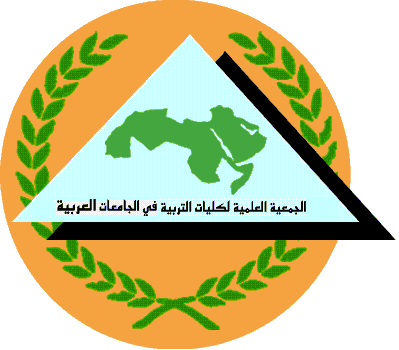Association of Arab Universities Journal for Education and Psychology

Abstract
Abstract
This study aimed to identify the basic concepts in the content of Earth and Environmental sciences textbooks for the upper basic stage, and to identify the difficult basic concepts from them. In this study, the descriptive analytical approach was used. An analysis card was used to identify the basic concepts in the content of Earth and Environmental sciences textbooks for the ninth and tenth grades, and an evaluation test was applied on the basic concepts that were limited to a sample of (33) students from the Umrah and Umira Basic School for Girls related to the Directorate of Education for the Northeastern Badia, Their validity and reliability were ascertained. A questionnaire was also used to find out the opinions of the (25) male and female teachers working in the education directorates of Mafraq Governorate about the degree of difficulty of these concepts. The survey results also indicated that the content of Earth and Environmental sciences textbooks for the ninth and tenth grades contained (42) basic concepts. The results of the students’ answers on the basic concepts test showed that there were (24) difficult concepts including (erosion, star, rock, sediments, Milky Way, cycle star life, wastewater treatment, pollutants, sedimentation, weathering, metamorphic rocks, water pollution, pure matter, water harvesting, solar eclipse, lunar eclipse, air front, fusion Nuclear, atmospheric pressure systems, external processes, oxidation, atmospheric pressure, solar system, and petrification) With a percentage of (57.14%), while the results of analyzing teachers’ opinions showed that (3) of the basic concepts came with a low degree of difficulty, including (Element, groundwater, water cycle in nature), and the others were came with hard degree. In light of the results, the study recommended the importance of students' mastery of basic earth and environmental sciences concepts and to focus on difficult concepts.
Abstract
This study aimed to identify the basic concepts in the content of Earth and Environmental sciences textbooks for the upper basic stage, and to identify the difficult basic concepts from them. In this study, the descriptive analytical approach was used. An analysis card was used to identify the basic concepts in the content of Earth and Environmental sciences textbooks for the ninth and tenth grades, and an evaluation test was applied on the basic concepts that were limited to a sample of (33) students from the Umrah and Umira Basic School for Girls related to the Directorate of Education for the Northeastern Badia, Their validity and reliability were ascertained. A questionnaire was also used to find out the opinions of the (25) male and female teachers working in the education directorates of Mafraq Governorate about the degree of difficulty of these concepts. The survey results also indicated that the content of Earth and Environmental sciences textbooks for the ninth and tenth grades contained (42) basic concepts. The results of the students’ answers on the basic concepts test showed that there were (24) difficult concepts including (erosion, star, rock, sediments, Milky Way, cycle star life, wastewater treatment, pollutants, sedimentation, weathering, metamorphic rocks, water pollution, pure matter, water harvesting, solar eclipse, lunar eclipse, air front, fusion Nuclear, atmospheric pressure systems, external processes, oxidation, atmospheric pressure, solar system, and petrification) With a percentage of (57.14%), while the results of analyzing teachers’ opinions showed that (3) of the basic concepts came with a low degree of difficulty, including (Element, groundwater, water cycle in nature), and the others were came with hard degree. In light of the results, the study recommended the importance of students' mastery of basic earth and environmental sciences concepts and to focus on difficult concepts.
Keywords: basic
Recommended Citation
Al-Fawareh, Fadia Darzi Khalif and Al-Alimat, Ali Moqbel
(2023)
"دراسة تحليلية تقويمية للمفاهيم الأساسية والصعبة في محتوى كتب علوم الأرض والبيئة للمرحلة الأساسية العليا في الأردن An Analytical Evaluative Study of the Basic and Difficult Concepts in the Content of Earth and Environmental Science Textbooks for the Upper Basic Stages in Jordan.,"
Association of Arab Universities Journal for Education and Psychology: Vol. 21:
Iss.
1, Article 4.
Available at:
https://digitalcommons.aaru.edu.jo/aaru_jep/vol21/iss1/4

